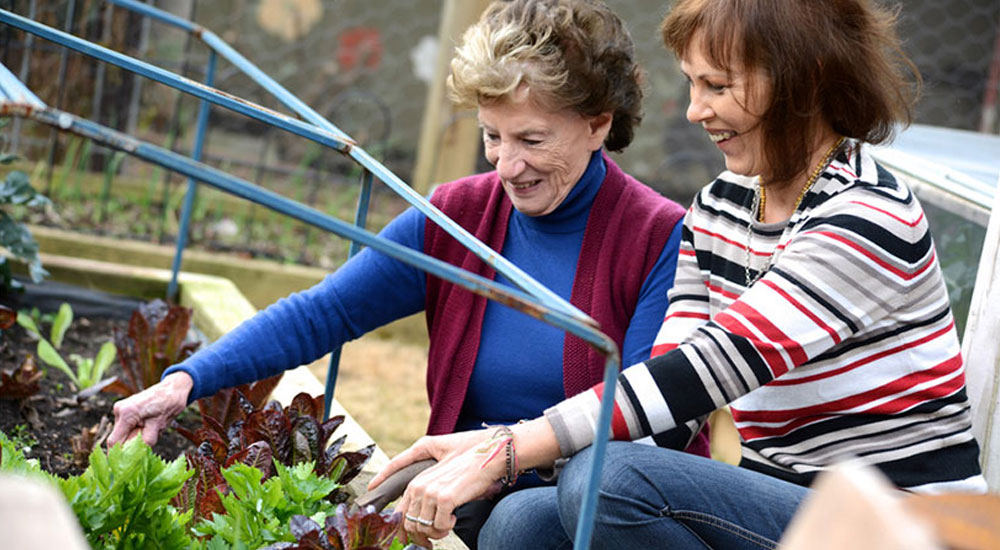Caregiving is the epitome of love.
Be it you are taking care of an aging parent, a spouse or a sibling / child with physical or mental illness, providing care for a family member is the ultimate act of love.
However, it is also not an easy job. In fact, it can be incredibly tough since not many would have had undergone the training required to manage it. In most cases, such a situation often comes as a surprise so many get caught in the caregiver role without having a single clue.
As a result, we often see family caregivers falling victims to illnesses like depression or anxiety. They are also more prone to suffering physical injuries or burnout etc. compared to those who are not caregivers.
Support Options for Family Caregivers
Safe to say, caregiving is physically and emotionally demanding. But it is also among the most rewarding things you can do in your life. Here are 7 ways on finding the support that will help you make this journey a rewarding one – both for you and the person you are caring for:
1. Friends and Family
They are probably the closest and nearest help you can seek for in the first instance.
Despite your best efforts, you just cannot do everything on your own. So share your responsibilities with a sibling/other family members. If things are really taking a toll on you, do not hesitate to ask a sibling to take on more.
Although it is not always easy to ask for help from friends, do not be afraid to ask. Often, they are more than willing to help – they just do not know how.
You can make things easier for them by having a list of assignments ready i.e. when to prepare a meal, what to look out for, picking up a few groceries etc. so that they will know what to do.
And do not underestimate the effect of having a neighbour over just for a few hours a day. Your neighbour can help look after your loved one so that you can take a break and have a few moments for yourself. They do not even have to do much – just keeping your loved one company, chatting with them or even going for walks will make all the differences in the world.
2. Religious Institutions
Religious and spiritual organisations can be at the core of emotional support during difficult times. This can be your church, temple or other places of worship. Do not hesitate to pray and seek for peace and calmness if this is going to help.
3. Professional In-Home Aged Care Providers
You have said it before – you’re not going to send your loved one to assisted living. You do not have to go against your promise – seek out professional in-home aged care providers instead.
From personal care to nursing care, the packages available for you to choose from are varied and aplenty. Choose the services that you require only, for the duration that you need and nothing else. That’s the beauty of it – the flexibility to choose what you want according to your needs.
And while they are not as costly as you may initially think to start with, there are also several government funding options that you can apply to help lessen the financial burden.
4. Respite Care
As mentioned above, you cannot do everything on your own. Likewise, you cannot do everything 24/7 without a break – it will drain your energy and take a toll on your physical, mental and emotional health.
Respite care will help you avoid this. Be it just a few hours away meeting up with friends or taking a vacation away from it all, respite care will refresh you. Stay social, and do things that you enjoy – you need to maintain a balance in your life.
Remember, you are not just doing this for yourself – it is also for the person you are caring for.
5. Caregiver Support Groups
This can be at a local hospital or online forums.
There are actually many caregivers out there who are experiencing the same challenges as you are. Chatting with them and sharing your experiences can be invaluably helpful so look for them online – there are plenty of internet chat groups or forums for caregivers.
The fact in knowing that there are people out there who are facing the same experiences as you are is often enough a comfort in itself, both to the mind and soul.
6. Community Centers
Most communities offer helpful support programs for caregivers. The services available can range from adult day care programs to the respite care we’ve been talking about. Often, you may find home-delivered meals, transportation services and even skilled nursing that will help make your caregiving job easier.
Other options you can look for support is from your national caregiver organisations, or seek help from a therapist, social worker or counsellor if you think your mental and emotional health is suffering.
7. Local Hospital
Many do not look for support at their local hospital but it is a place worth checking into. Some may have classes where they guide you on how to provide care for your loved one. For instance, how to carry and support a loved one properly so that you do not hurt yourself in the midst of doing so. Learning a few tips like this is helpful and can come in handy especially when you do not have a medical background.
Summary
So there you go, 7 ways on how you can find support in this caregiving journey.
With few exceptions, know that you are not alone. Really, you are not.
Sure, as a family caregiver, there are many new responsibilities but you do not have to be overwhelmed by them. Help is always there, but you need to ask.
With the right help and support, you can provide loving and effective care without having to sacrifice yourself in the process. Get in touch with us today to see how we can support you.



